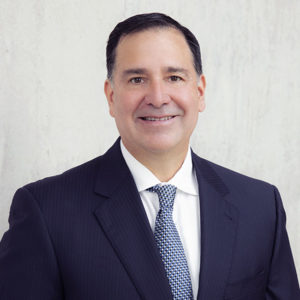On November 16, 2020, the U.S. Department of Health and Human Services Office of Inspector General (“OIG”) issued a Special Fraud Bulletin highlighting fraud and abuse risks related to speaker programs conducted by pharmaceutical and medical device companies. At issue are events where physicians or other health care professionals are paid by a sponsoring company to give speeches or make presentations to colleagues about the company’s drugs or devices. The OIG noted that drug and device companies have reported paying nearly $2 billion to health care professionals for participating in such events over the last three years.
The OIG and the Department of Justice reported that the federal government has pursued numerous civil and criminal cases against companies and individual health care professionals involved in these events. Specific allegations include: (i) selecting physicians who are high utilizers of a company’s products and rewarding them with lucrative speaking engagements; (ii) conditioning engagements or speaker fees on sales targets; (iii) scheduling events at entertainment venues such as sporting events or wineries that are not conducive to the educational purpose of the presentations; (iv) holding programs in high end restaurants where expensive meals and alcohol is served; and (v) inviting as audience members attendees who have already attended previous events or persons (such as friends or family members of health care professionals) who have no legitimate business interest in attending.
While pharmaceutical and medical device industry trade groups maintain that these events help educate and inform health care professionals, the OIG flatly stated that it was skeptical about the educational value of many of these programs. When health care professionals are paid excessive compensation to speak at events which are not conducive to learning, and/or speak to individuals with no legitimate reason to attend, the OIG reasoned that one purpose of the remuneration to the health care professional is to induce or reward referrals. The OIG added that studies have shown that health care professionals who receive remuneration from a company are more likely to prescribe or order that company’s products.
The OIG recommended that health care professionals consider the propriety of these types of relationships with companies, and warned that if the basis for the health care professional’s compensation is to reward or influence the use of the company’s goods or services, the arrangement likely violates health care fraud and abuse laws. The OIG listed specific suspect characteristics of arrangements, including: (i) company sponsored events where little or no substantive information is provided; (ii) events where free alcohol is available and/or expensive meals are provided; (iii) events held at sporting venues, theme parks, or other places not conducive to listening and learning; (iv) repetitive events on the same topic to the same audience when there has been no change in substantive information; (v) attendees have no independent and legitimate professional reason to attend the events; (vi) a company’s sales or marketing department influences the selection of speakers or speakers are chosen based on past or expected future generation of business; and (vii) the fee paid to the speaker is above fair market value or determined in a manner that takes into account business generated by the speaker for the company.
The OIG acknowledged that meaningful training and educational programs exist and should not be discouraged, but that parties should take efforts to eliminate suspect criteria of these events, and companies and potential speakers and attendees should carefully assess these risks when paying or receiving remuneration related to participating in these programs. The OIG also encouraged individuals and companies to utilize its Advisory Opinion process if it has questions about the propriety of a specific arrangement. The complete Special Fraud Alert can be found here.
During the pendency of the coronavirus pandemic, these types of in person events have been greatly curtailed, but as circumstances change and these events resume, companies and health care professionals are urged to carefully evaluate the risks of these programs under the OIG’s guidance. If properly structured, these events serve a very valuable purpose and health care professionals can be appropriately compensated for time and effort spent. The attorneys at Byrd Adatto have extensive knowledge and experience in advising health care companies and providers on financial arrangements such as the ones discussed in this Special Fraud Alert. If you are considering hosting such an event, or have been asked to participate in one, and would like assistance in evaluating it under applicable health care fraud and abuse guidelines, please schedule a consultation with Greg Cardenas at info@byrdadatto.com.
